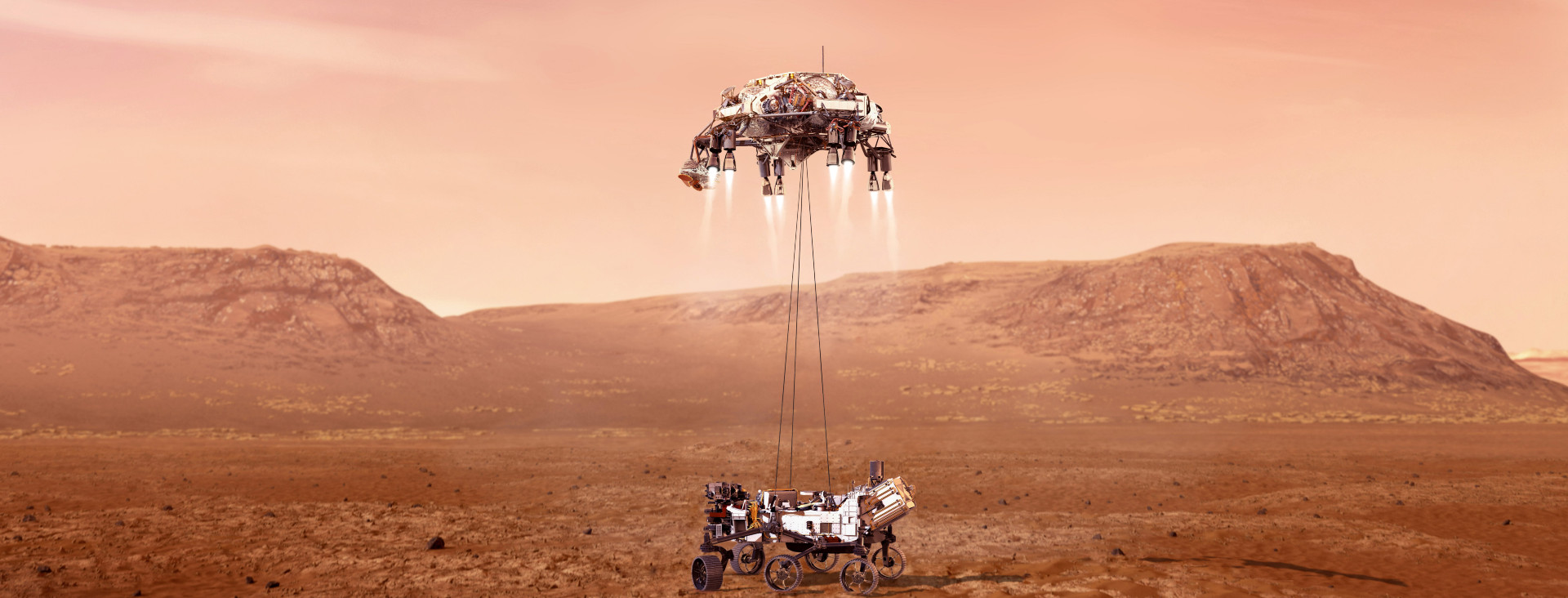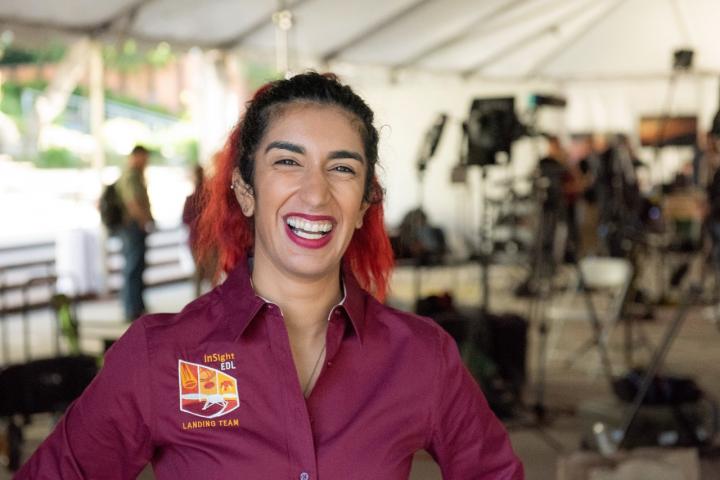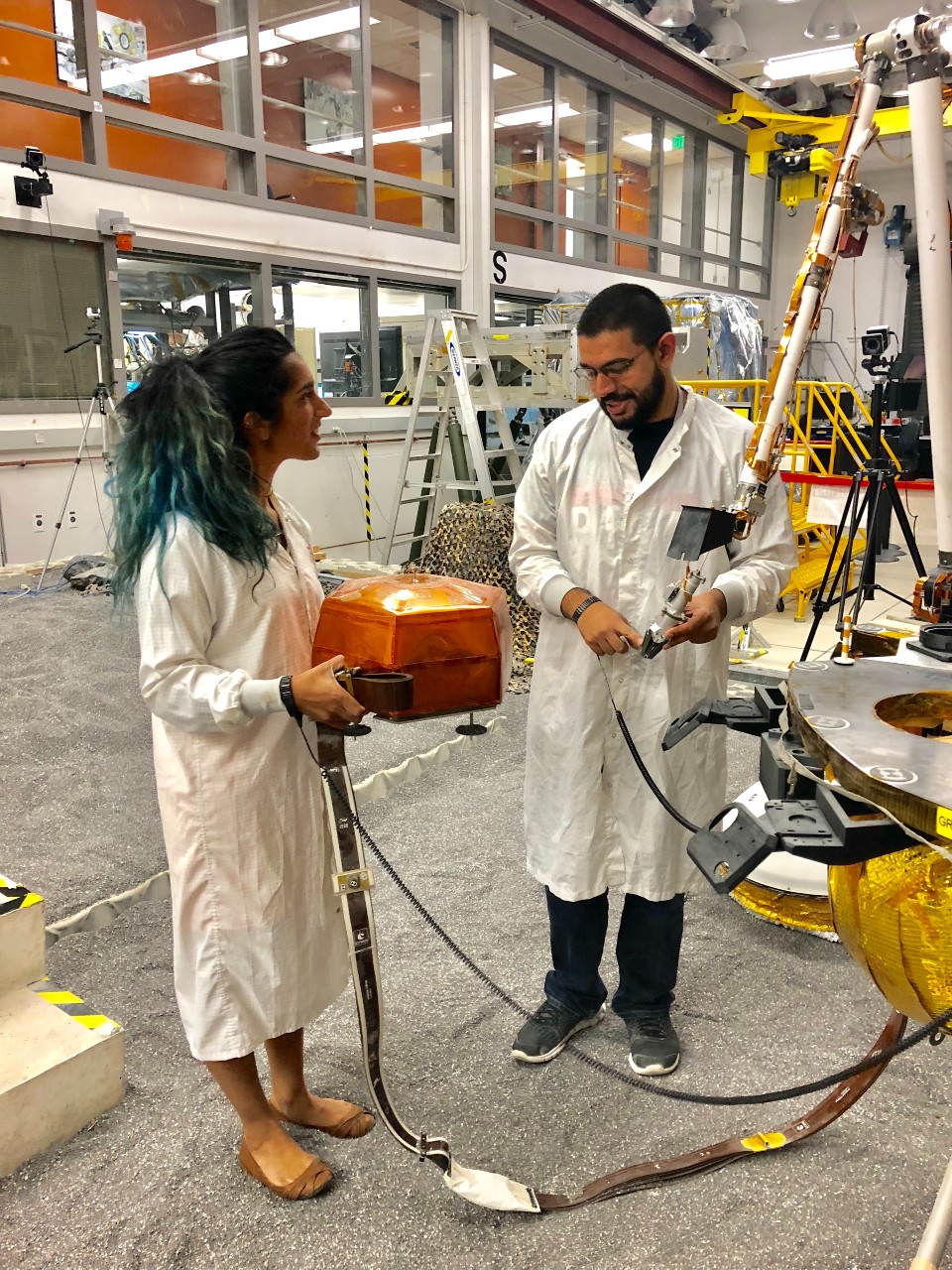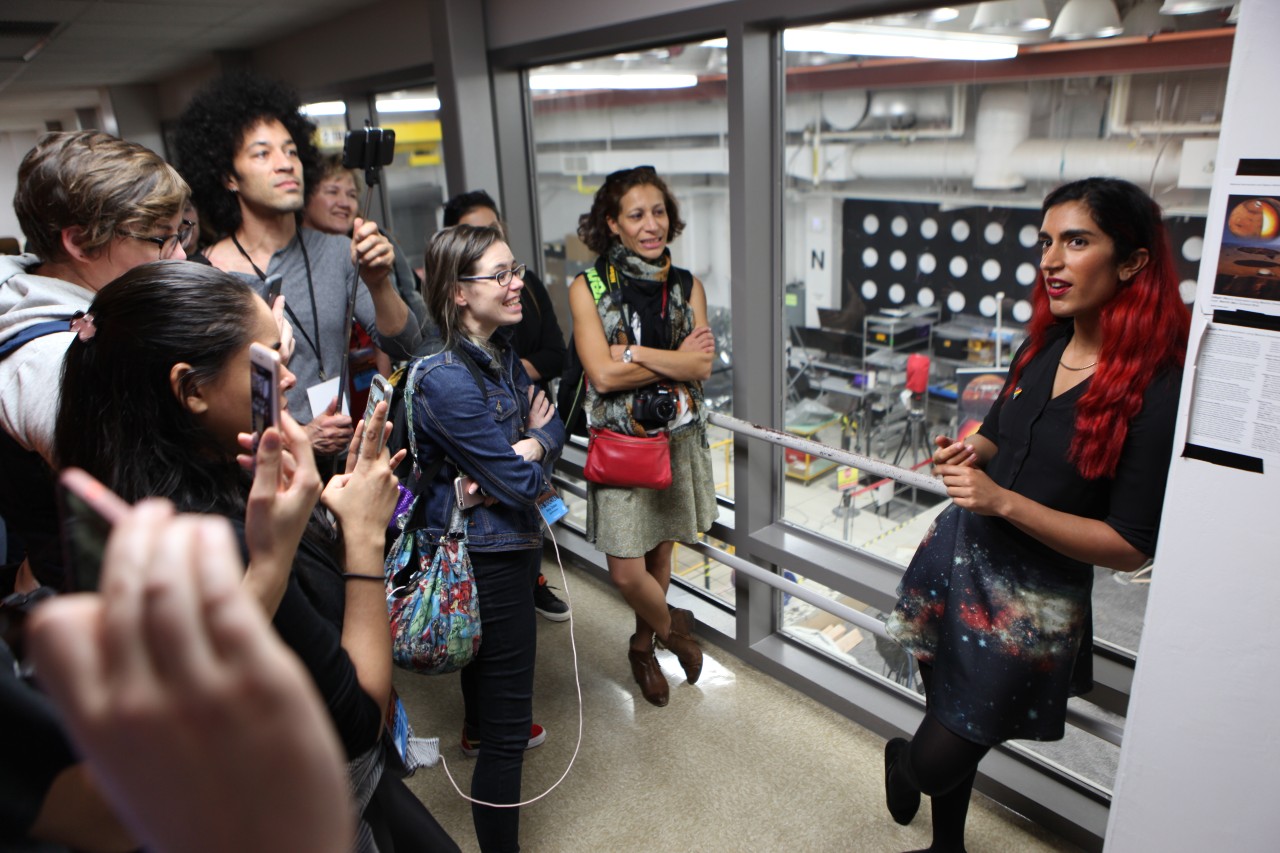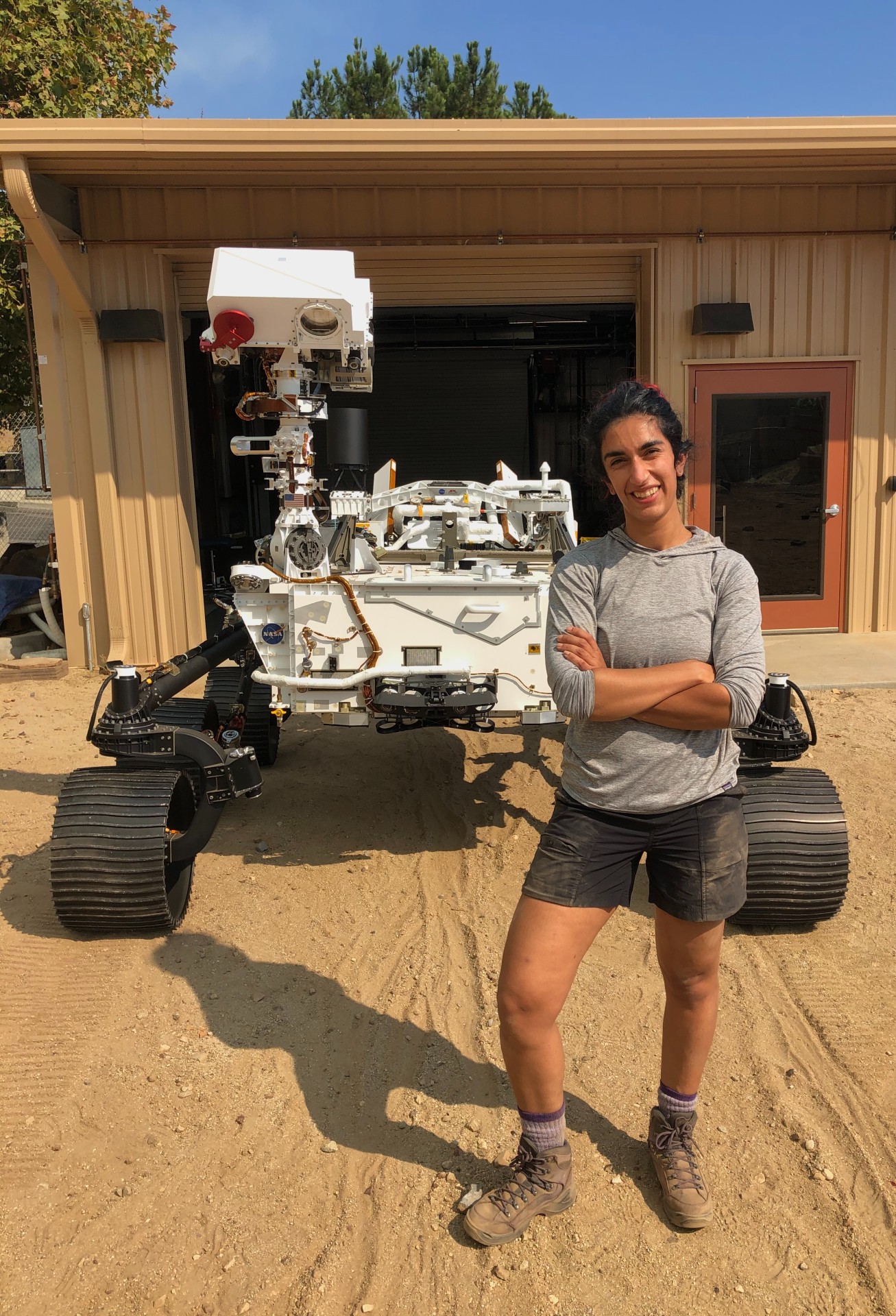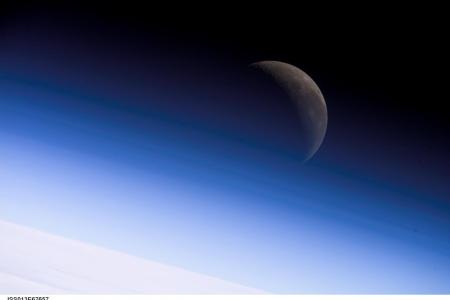Alibay, 33, says her parents were instrumental in her becoming an aerospace engineer. She and her brother were born in the small town of Joliette, Quebec. They were raised without gender stereotypes, she says. She played with toy cars and Lego as much as with dolls, and had an insatiable appetite for learning.
“School was her life,” recalls her mother Nadine Soundarjee, who remembers her daughter crying when each school year ended.
In high school, Alibay nearly went in a completely different career direction as she decided between medicine and aerospace. She recalls how she felt encouraged by many around her, including her religious community, to become a doctor.
Her parents, on the other hand, pushed her to follow her passion. “I remember my father saying, ‘If you want to be a farmer then have a farm, but do your best and put your heart into it.’”
“My brother was the one who was into space and I really liked dinosaurs,” she recalls. That changed when she was nine and they watched the movie Apollo 13. Spoiler alert: “I remember he was horrified. We had to fast forward to the end to show him the astronauts survived,” she says. “By the end of it, he was no longer interested in going to space and I was just fascinated.”









